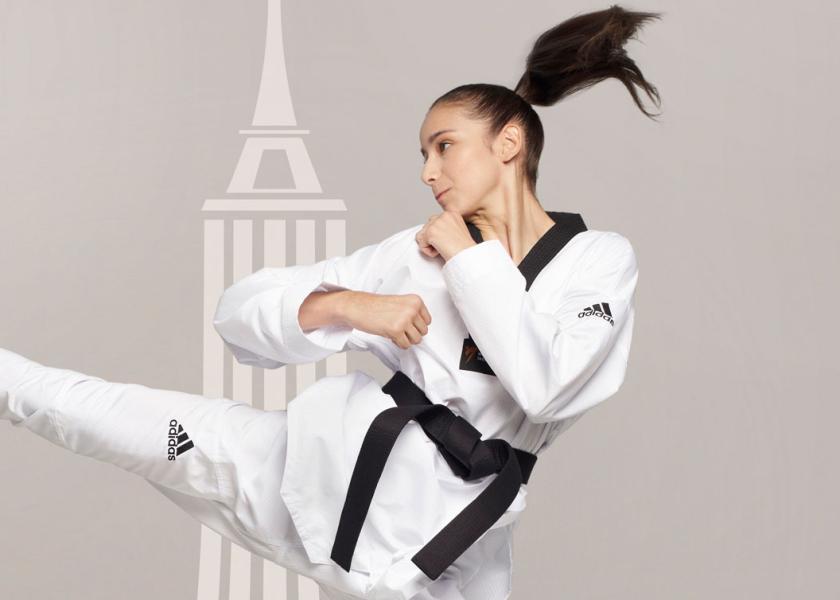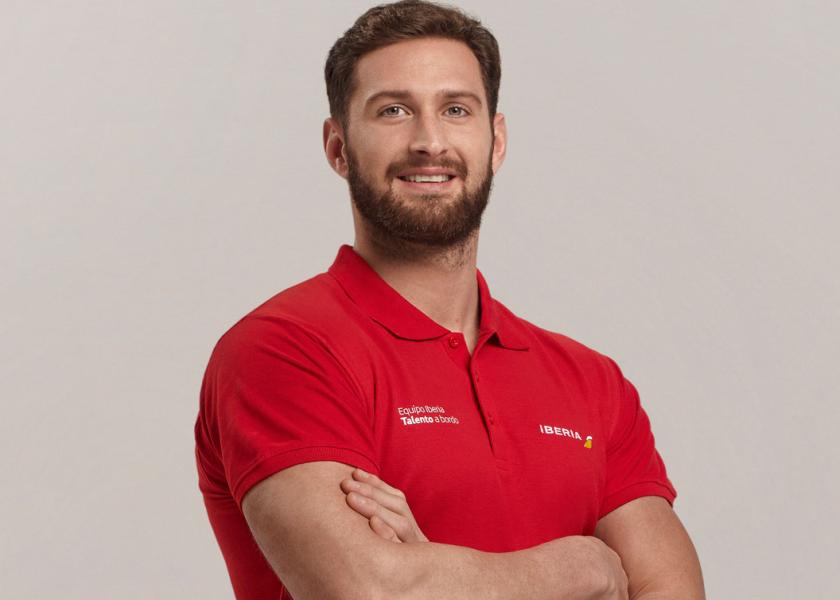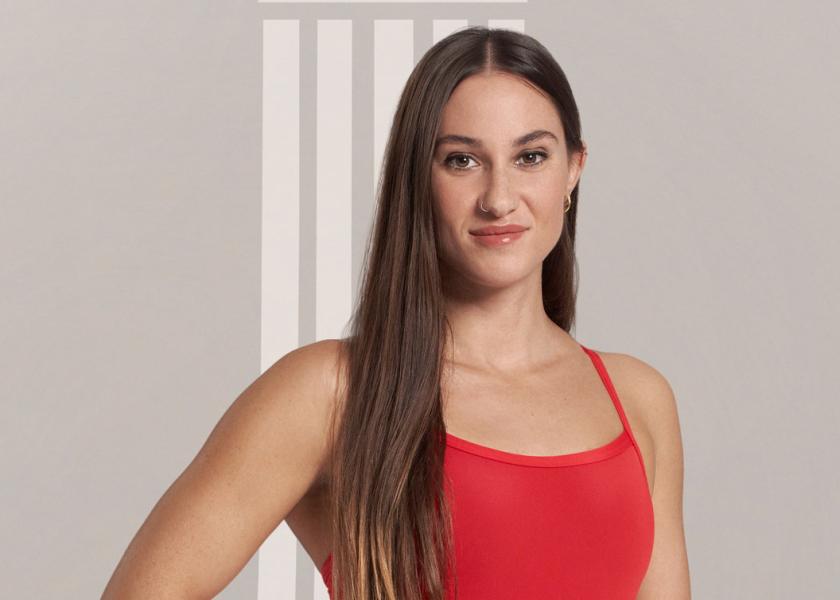Alberto Ginés
At the peak of climbing
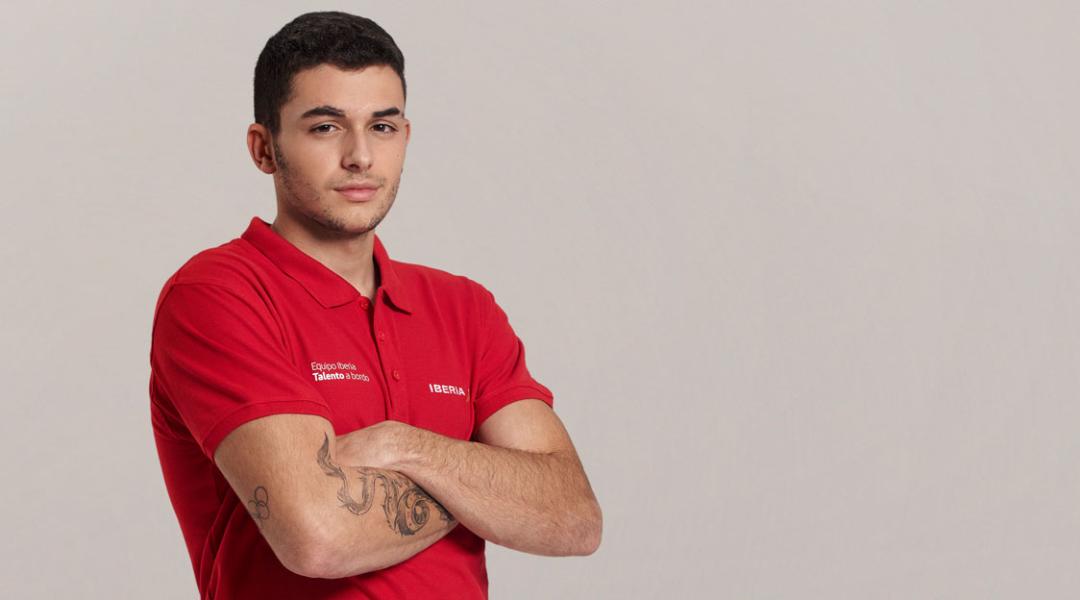
The gold Alberto Ginés won at the Tokyo Games turned him into a star overnight. When this climber stepped out of the spotlight, he returned to his training sessions with one main goal: to get motivated again. Now, this athlete from Cáceres, who is a bit self-critical and admits to this not being his best season, sets his sights on the qualifier, where he hopes to guarantee his place in Paris.
At the Tokyo Games, Alberto Ginés (Cáceres, 2002) won more than a gold medal. He etched his name in the history of the sport by becoming the first sports climbing champion. And he did so at the tender age of 18. Despite being used to heights, he couldn’t help feeling a bit overwhelmed. Who wouldn’t in his place? Overnight, he became the centre of attention and his life changed to the point that he asked himself: What now? This climber confesses that that phase wasn’t an easy one, but he learnt lessons such as: “I’ve always preferred praise to criticism, but I believe that when it comes to high-performance sports, constructive criticism is better for you.” This season hasn’t been the best either, in fact, he himself describes it as “strange” and he failed to achieve his goal at the Climbing World Championships in Bern (Switzerland): to qualify for the Games. Something he hopes to fix at the qualifier held at the end of October.
You started climbing with your father at the tender age of three. Has the way you experience climbing changed over time?
I think about this a lot... At the beginning, I used to go climbing when I felt like it, it was something I used to do because I had fun and it made me feel free. Now, however, there are days when I don’t feel like training; especially during the preseason, when the training sessions are particularly tough, and I have muscle soreness or my fingers bleed. Perhaps in those moments, I don’t enjoy myself as much (laughs), but I still climb because I like doing it. And even though it’s harder to find the time, every year I try to go climbing with my father.
To continue growing as a climber, you had to move from Cáceres to the High-Performance Centre in Sant Cugat. You were 15. Was that a particularly tough time?
Yes, it was hard. I went on my summer holidays and, when I got back, I was told that I’d been granted a scholarship at the High-Performance Centre and I had to start in two weeks, so it was quite sudden. I was excited because continuing to train in Cáceres wasn’t an option, so it wasn’t traumatic, but it was tough because when I got to the High-Performance Centre there was no climbing wall, or climbers, or a team, and the only person I knew was David, my coach. I asked myself: What am I doing here? I gradually started to meet wonderful people and made a great group of friends, until the centre became my home.
“The goal in Tokyo wasn’t even winning, just getting to the final and doing the best that I could. But I went and won, and the greatest dream of any athlete came true”
And at 18, your biggest dream came true: winning the gold medal at the Games. What do you dream of now?
During the previous years, the Tokyo Games were my main goal. And my goal wasn’t even winning, just getting to the final and doing the best that I could. But I went and won, and the greatest dream of any athlete came true. When I came home, I went through difficult moments; I asked myself: What now? When I came out of that haze, that is, when I managed to return to my everyday life and the pace of my training, it was a reality check. But I buckled down and started working hard again. In the end, you have to look for motivation and set yourself new challenges, like becoming a World champion or going back to the Games and winning again.
In fact, after winning the gold medal, you worked with a therapist. How important is mental health in sports?
Super important, both in life in general and in sports in particular. A therapist isn’t a magician who can cure you, but they do give you the clues to detect what’s not working and the tools to work on yourself. Your mind is super complicated, it’s not like tonsilitis which can be cured with antibiotics, and that’s why it’s essential to work on your mental health. Not just when you’re going through a rough patch, but also when you’re riding a high, like I was after the Games.
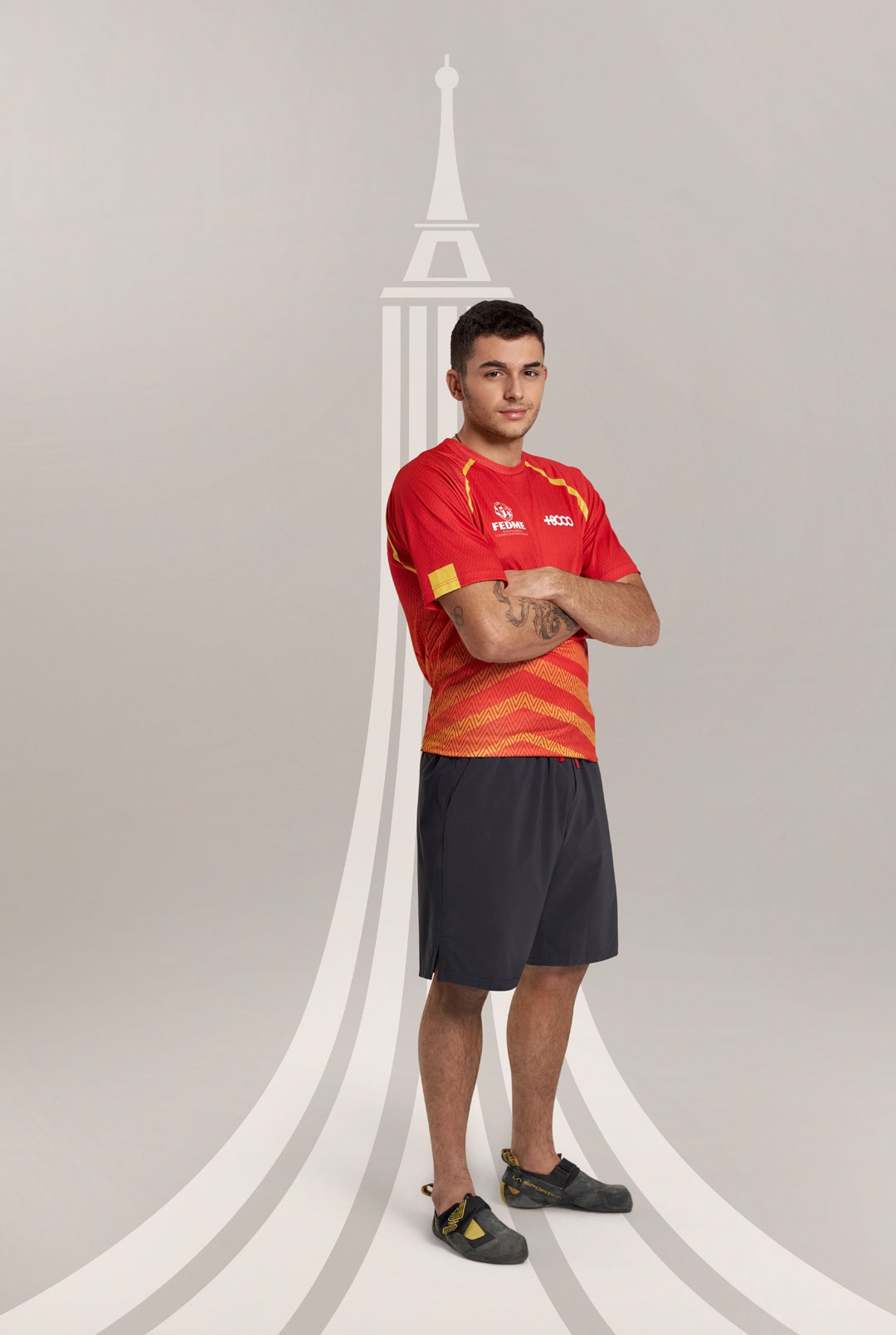
Sports climbing made its debut in Tokyo and Alberto Ginés became the first champion of this discipline.
Some described your victory in Tokyo as a miracle because of the lack of climbing infrastructure in Spain. Has the situation improved?
A year ago, we managed to get a climbing wall installed at the High-Performance Centre. It’s more than what we had for Tokyo, but we’re still missing facilities. I got back from France yesterday afternoon [this interview was conducted on Monday the 4th of September]. We drove up Saturday and Sunday, after training for several hours, we came back. We drove one thousand kilometres round trip to train lead because there’s nowhere to do it in Spain.
Your success encouraged many people to start climbing. What would you say to someone who’s starting out and is asking themselves which talents they need to reach the top?
I feel particularly proud of making climbing popular. Now it feels like everyone goes climbing or has climbed at some point. Beyond talent, for me the most important thing is to start by enjoying yourself. That’s what I’d tell them. Whichever sport you practice you need to really love it and it needs to fulfil you. If this is the case, it’ll be easier for you to train and compete until, who knows, you reach the Games. If that’s not the case, whenever you go through a rough patch, you’ll struggle to carry on.
“Pressure is very subjective, it’s something that you put yourself under and you need to learn how to compete and live with it”
You were practically unknown when you went to Tokyo, but now all sights are set on you. Do you feel the pressure of expectation?
Pressure is very subjective. Winning a gold medal doesn’t mean that I’m under more pressure. When I won my first European Youth Championships I didn’t have as many people following me, but I set myself the challenge of winning again the following year. In the end, pressure is something that you put yourself under and you need to learn how to compete and live with it.
At the recent Climbing World Championships in Bern, you didn’t manage to qualify for Paris. Has this been a tough blow?
I performed quite poorly. My season has been quite strange because it’s the first time I’ve done better at bouldering than leading, which is my speciality; I haven’t felt 100% while competing. My main goal was to qualify for the Games, or at least fight for them, but I didn’t even manage to be among the first 20. It’s been a reality check and it has made me focus because I thought I was on the right path, but perhaps I’m not doing so well. There’s still the qualifier at the end of October, so I just have to work hard and improve.
The competition model in Paris changes compared to Tokyo (speed on the one hand and bouldering and difficulty on the other), how does this affect you?
In Tokyo, we had to adapt to a completely new format that combined all three disciplines and in Paris we’ll have to adapt again. The idea is to end up competing in three disciplines separately because that’s how we’ve always done it, so in 2028 in Los Angeles, it’ll change again. In the world of competition, if you don’t adapt you don’t survive. In fact, the winner is the one who adapts the best.
